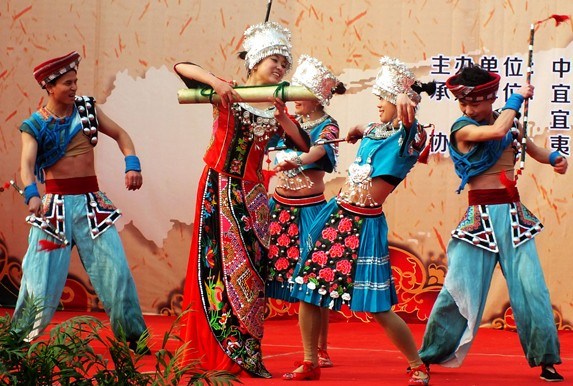 |
|
Tujia singers and dancers perform during the Lantern Festival in Hubei province's Yichang in 2014. The protection of ethnic cultures is a national focus. Ren Weihong / for China Daily
|
The first dictionaries of the country's myriad ethnic languages without native written forms are rolling off the presses. As the foundations of the Middle Kingdom's Tower of Babel weaken, the structures to preserve these tongues have been building up.
Tian Desheng is worried about publishing the Tujia-Han dictionary he has worked on for a decade. The 81-year-old says that's because his ethnically Tujia 20-year-old grandson speaks Putonghua, English and German but not a word of Tujia. Once Tian called his grandson and asked him in Tujia to put his grandmother on the phone. But his grandson required Tian to repeat the request in Putonghua because he couldn't understand his grandpa at all. The grandson's situation is typical, despite the fact the ethnicity is China's seventh largest with 8 million members.
Tian, who has spent his life studying and protecting his mother tongue, laments that only people around his age speak the language.
Younger generations in Hunan province's Xiangxi Tujia and Miao autonomous prefecture, where Tian lives, mostly communicate in Putonghua.
"I'm afraid nobody will know Tujia after old people like me die," Tian says.
That's why he invested a chunk of his life in the dictionary.
We Recommend:
